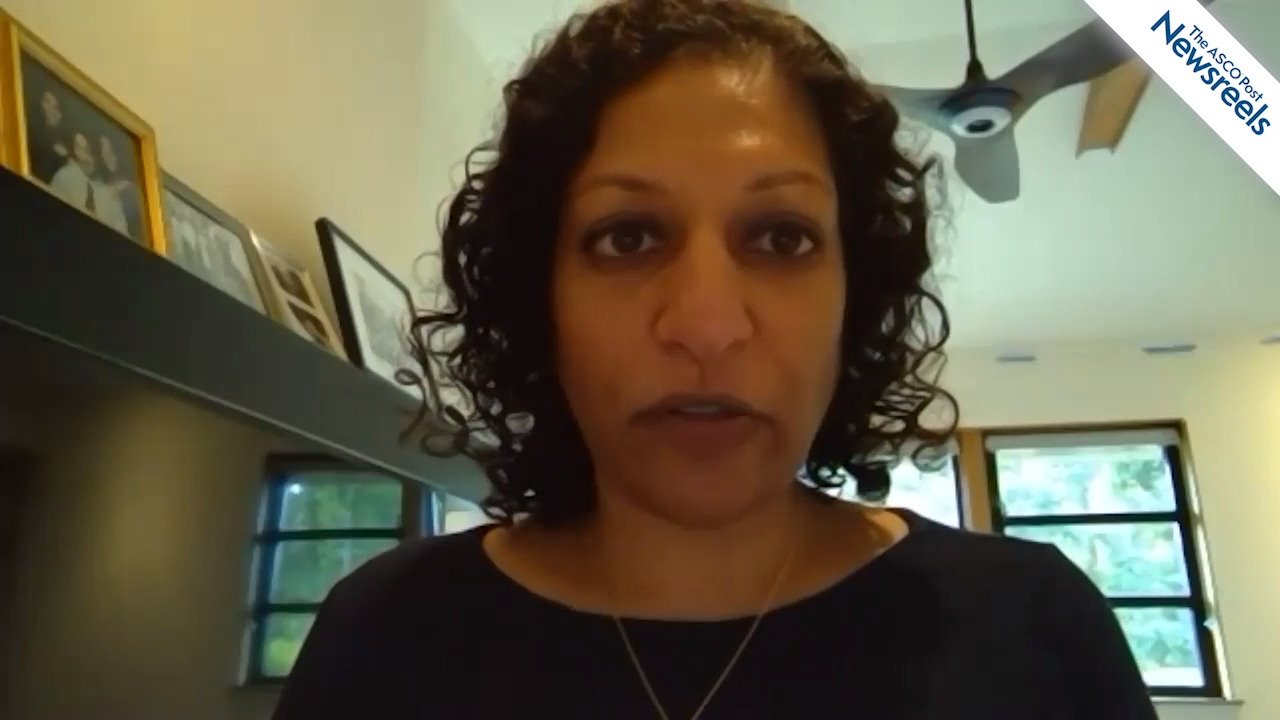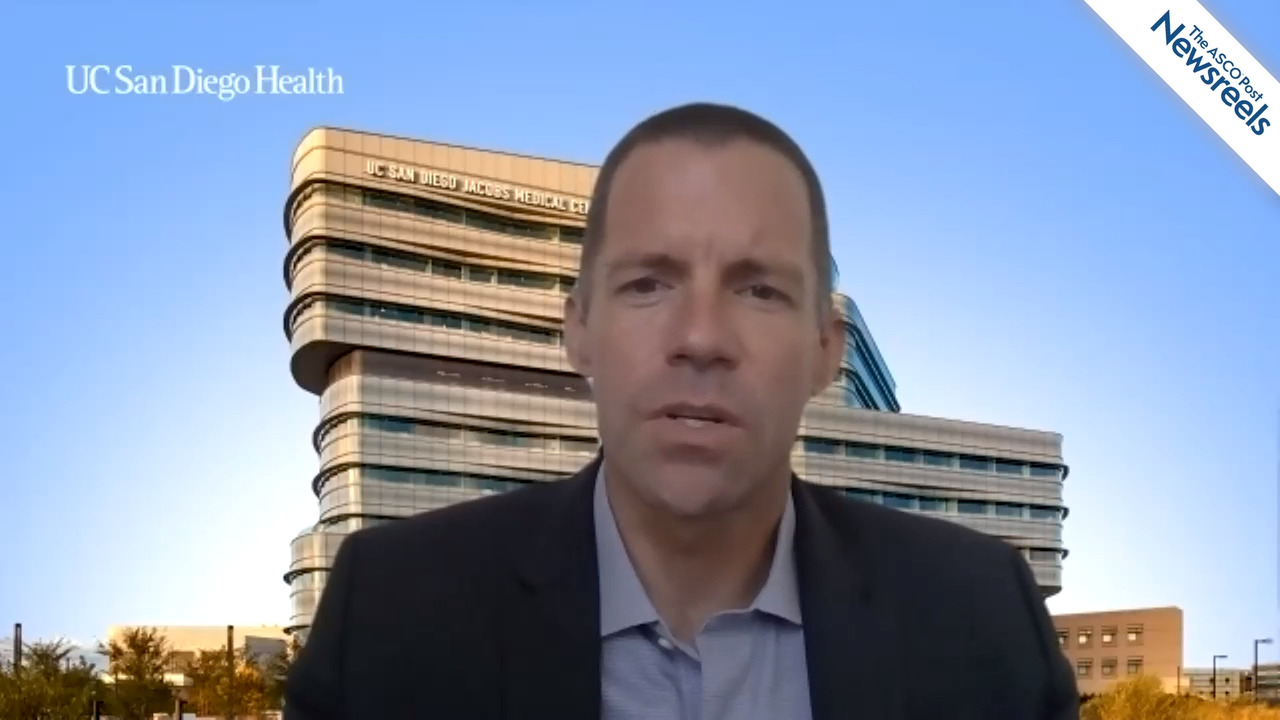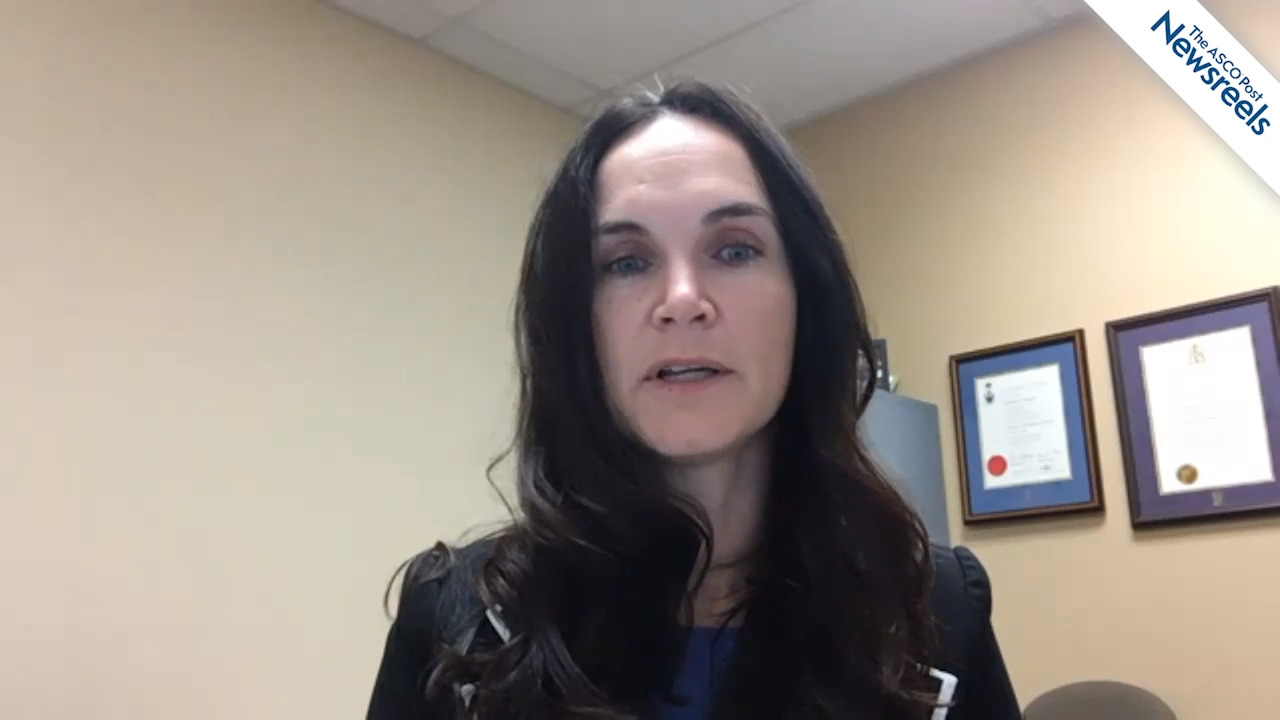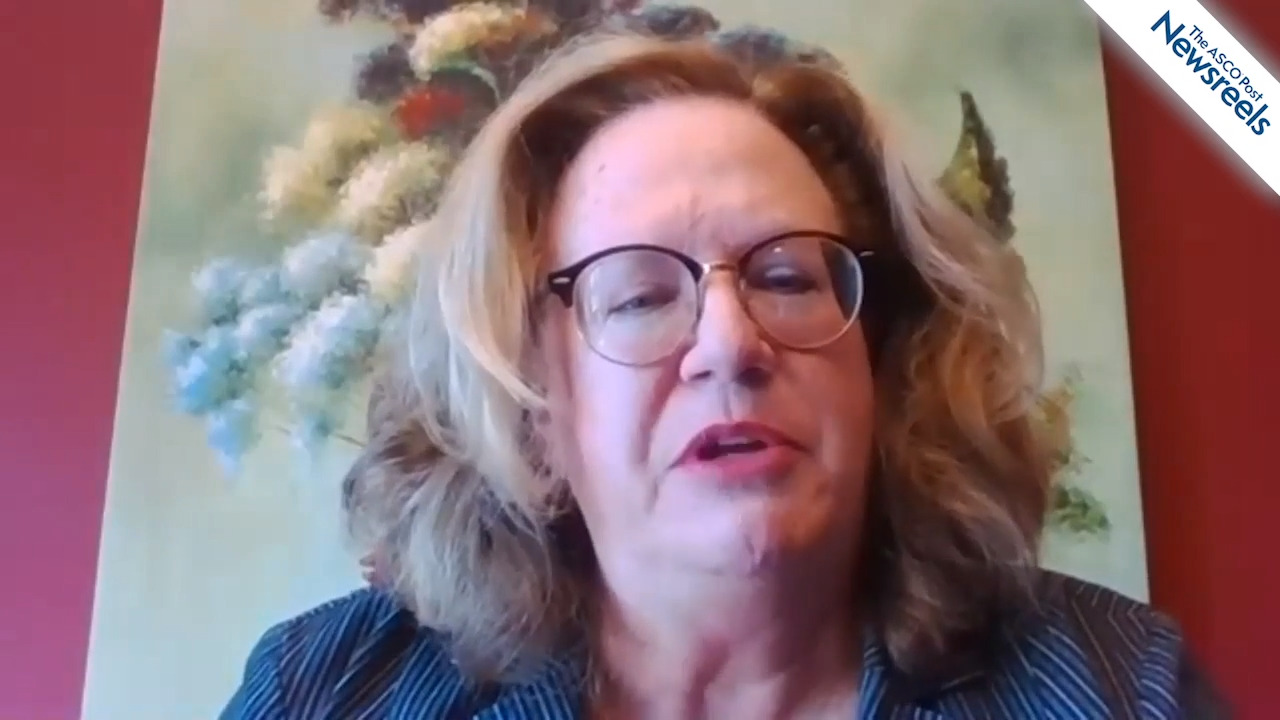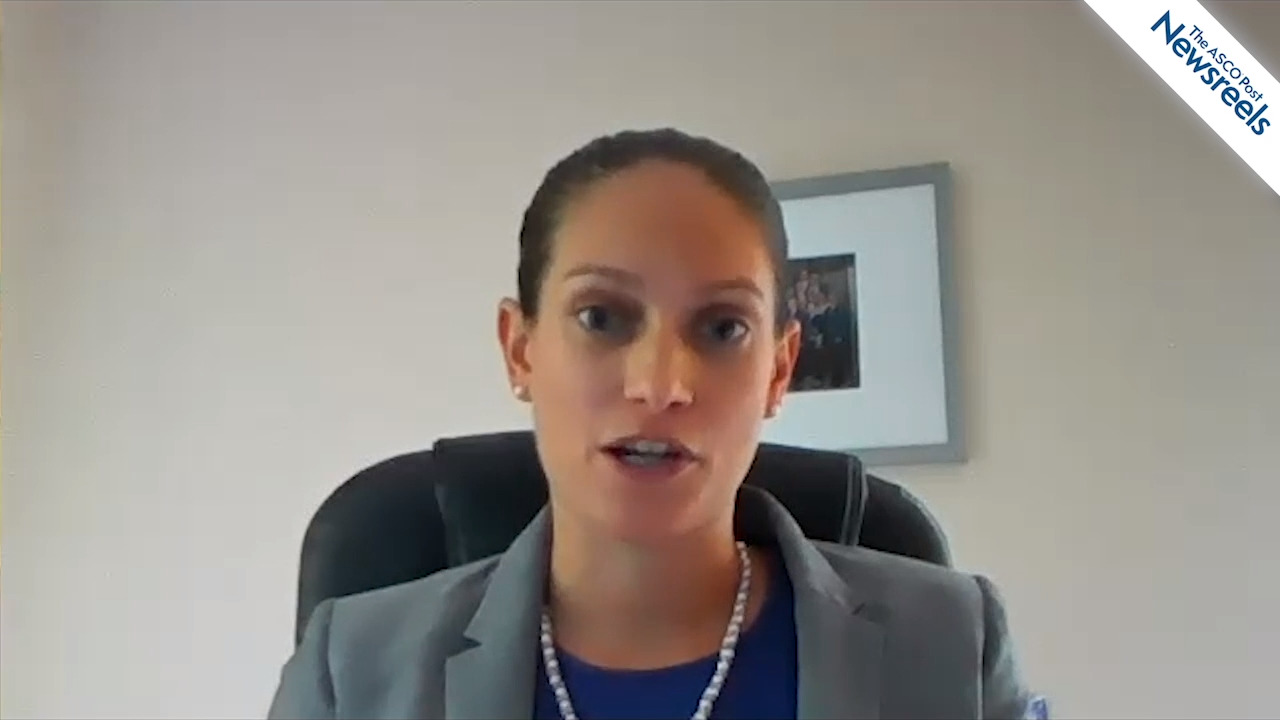Marie A. Flannery, PhD, and Eva Culakova, PhD, on Managing Symptoms in Older Adults With Advanced Cancer
2020 ASCO Quality Care Symposium
Marie A. Flannery, PhD, and Eva Culakova, PhD, both of the University of Rochester, discuss a geriatric assessment tool that helped reduce symptomatic toxicities, as measured by Patient-Reported Outcomes Common Terminology Criteria for Adverse Events (Abstract 138).
The ASCO Post Staff
Veena Shankaran, MD, of the Seattle Cancer Care Alliance, discusses study findings from a national sample of patients with metastatic colorectal cancer who are on systemic therapy. A year into their treatment, nearly three out of four patients had major financial hardships despite access to health insurance coverage (Abstract 137).
The ASCO Post Staff
James D. Murphy, MD, of the University of California, San Diego, discusses the possible reasons for a decline in long-term opioid use in patients with cancer, even as short-term use is rising, as well as the racial and socioeconomic disparities of opioid use in this population (Abstract 187).
The ASCO Post Staff
Katherine Enright, MD, MPH, of Trillium Health Partners in Ontario, discusses a model of quality improvement, which potentially could be adapted across health systems to improve oral systemic cancer care (Abstract 184).
The ASCO Post Staff
Anne M. Barry-Weers, RN, of Aurora Health Care/Aurora Cancer Care in Milwaukee, discusses strategies that helped patients with cancer to better manage their chemotherapy-related symptoms at home, thus reducing visits to the emergency department and inpatient admissions, and improving treatment costs (Abstract 11).
The ASCO Post Staff
Melissa K. Accordino, MD, of Columbia University Medical Center, discusses findings showing nearly half of the patients with breast cancer treated at an academic center in New York City experienced a change or delay in their workup or treatment during the COVID-19 pandemic. Race and socioeconomic factors played a significant role (Abstract 88).
